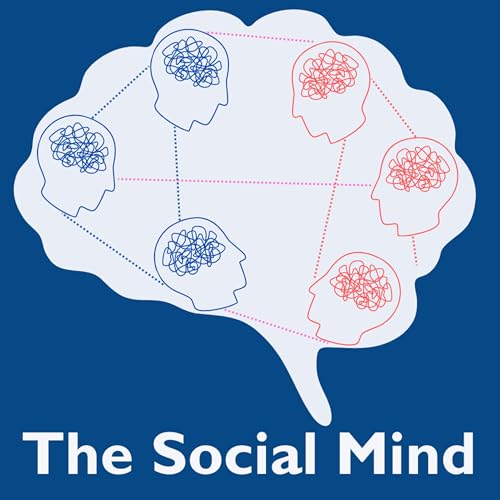-
サマリー
あらすじ・解説
Episodio 23 – Le notizie negative influenzano il nostro benessere?
In questo episodio esploriamo l'impatto psicologico ed emotivo delle notizie che consumiamo ogni giorno. Discutiamo di come l'esposizione continua a notizie negative possa influenzare negativamente il nostro benessere, portando a un aumento di stress, ansia e persino problemi di salute fisica a lungo termine. E infine scopriamo come l'inclusione di una notizia positiva nella nostra dieta mediatica può non solo migliorare il nostro umore immediato, ma anche contribuire a un benessere più duraturo.
The Social Mind è un podcast scritto, registrato e prodotto da Giovanni Telesca.
Contatti: thesocialmind@giovannitelesca.net
www.instagram.com/thesocialmind_podcast
www.giovannitelesca.net/the-social-mind-podcast/
Fonti e approfondimenti:
Hoog, N., Verboon, P., & Thijssen, J. (2019). Is the news making us unhappy? The influence of daily news exposure on emotional well-being. British Journal of Psychology, 110(2), 230-253. doi:10.1111/bjop.12345.
Leger, K. A., Charles, S. T., & Almeida, D. M. (2018). Let It Go: Lingering Negative Affect in Response to Daily Stressors Is Associated With Physical Health Years Later. Psychological Science, 29(8), 1283-1290. https://doi.org/10.1177/0956797618763097
McIntyre, K. E., & Gibson, R. (2016). Positive News Makes Readers Feel Good: A "Silver-Lining" Approach to Negative News Can Attract Audiences. Journalism Practice, 10(5), 584-599. doi:10.1080/17512786.2015.1053487.
Robertson, C. E., Pröllochs, N., Schwarzenegger, K., Pärnamets, P., Van Bavel, J. J., & Feuerriegel, S. (2023). Negativity drives online news consumption. Nature Human Behaviour, 7, 812-822. doi:10.1038/s41562-023-01538-4.
Seaton, C. L., Bottorff, J. L., Jones-Bricker, M., Oliffe, J. L., & De Leiris, T. (2021). Associations Between Valenced News and Affect in Daily Life: Experimental and Ecological Momentary Assessment Approaches. Media Psychology, 24(3), 332-351. doi:10.1080/15213269.2020.1825051.
Soroka, S., Fournier, P., & Nir, L. (2019). Cross-national evidence of a negativity bias in psychophysiological reactions to news. Nature Human Behaviour, 3(3), 239-248. doi:10.1038/s41562-018-0496-y.
Szabo, A., & Hopkinson, K. L. (2007). There is no news like bad news: Women are more remembering and stress reactive after reading real negative news than men. International Journal of Psychophysiology, 65(2), 190-195. doi:10.1016/j.ijpsycho.2007.04.001.
VanderWeele, T. J., & Brooks, A. C. (2020). A Public Health Approach to Negative News Media: The 3-to-1 Solution. JAMA Psychiatry, 77(9), 883-884. doi:10.1001/jamapsychiatry.2020.1405.
Credits:
La sigla è “Pop Culture” di SoundRoll
Music from #Uppbeat (free for Creators!):
https://uppbeat.io/t/soundroll/pop-culture
License code: UXDM5WZWON73REIO



